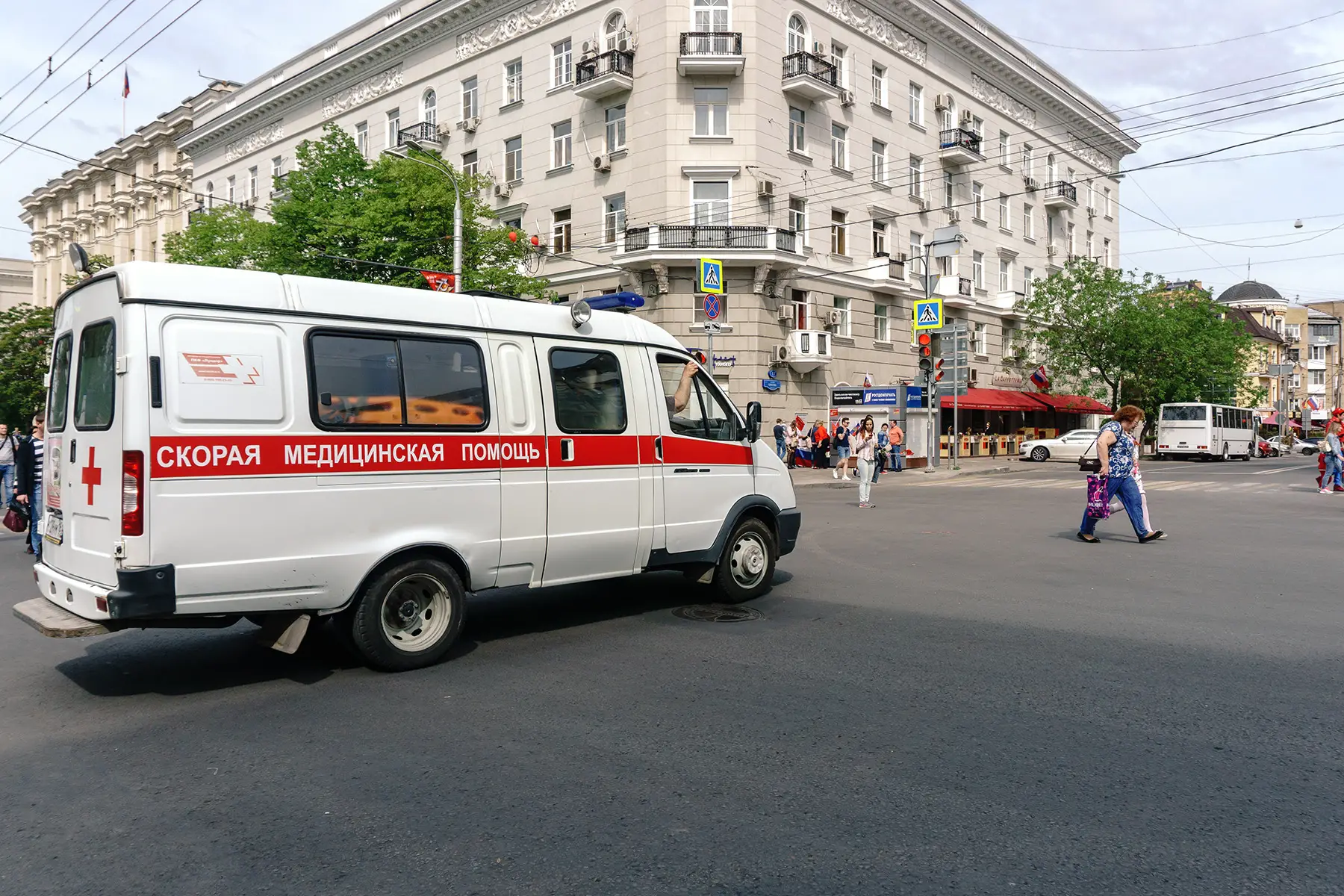Important notice from the Editor in Chief
Maintaining our Russian site is a delicate matter during the war. We have chosen to keep its content online to help our readers, but we cannot ensure that it is accurate and up to date. Our team endeavors to strike the right balance between giving information to those who need it, and respecting the gravity of the situation.
If you’re an expat moving to Russia from another country, you might be wondering how you’ll be able to contact your friends back home as well as all the new people you meet. Of course, as Russia is a large country, network coverage can vary enormously. In addition, once you leave the region you bought your SIM card in, you might find additional charges or that you can’t connect to the network. That said, most cities have excellent phone signal, Wi-Fi, and 4G.
It’s a good idea to get a Russian phone number, even if you’re only staying in the country for a short time. You can save a lot of money and download some handy Russian apps to get accustomed to your new environment. In addition, there are a surprisingly small number of mobile providers for such a big country, which can make your choice more straightforward, but how do you tell them apart? This guide will cover:
- The mobile network in Russia
- Can you use your own mobile phone in Russia?
- Mobile phone operators in Russia
- Pre-paid vs mobile contracts in Russia
- Mobile phone plans and contracts in Russia
- Prepaid SIM cards in Russia
- Mobile phones in Russia
- Russian mobile phone numbers
- Repairing a mobile phone in Russia
- Mobile phone laws in Russia
- How to complain about a mobile phone provider in Russia
- Useful resources
The mobile network in Russia
Russia uses mainly GSM technology for cell phones, so it’s a good idea to check whether your current mobile phone can use this standard. This is the case for most European phones, so you should be able to simply put in a new SIM card, providing your phone is unlocked.

All four of Russia’s leading mobile operators provide good 4G coverage. It’s possible to access 4G networks in cities across the country, although in remoter areas, you might only find access to 3G or lower. Currently, 5G coverage is limited in Russia.
Wi-Fi connection in Russia
In Russia, free Wi-Fi is available in almost every public space. Public Wi-Fi hotspots are dotted around many Russian cities. In fact, Moscow ranks third worldwide for accessibility of public Wi-Fi hotspots, which you can find all over the city, such as in parks and on the Metro. If you want to know how to set up Wi-Fi in your home, make sure to read about how to connect to Russian internet, TV, and telephone.
Can you use your own mobile phone in Russia?
Whether or not you can use your mobile phone in Russia depends on where you’re moving from. Putting in a new SIM card is pretty straightforward if you have a GSM phone. Some modern CDMA phones allow you to access the GSM network but check in advance to make sure you’re prepared.
It’s probably a good idea to get a Russian SIM card rather than using your current one. Not only do you ensure that you can connect to a Russian network, but it is far cheaper. Even if you are only in Russia for a short time, you can save a large amount of money, as you can buy pay-as-you-go SIM cards at airports that offer low prices for large amounts of data. Roaming charges from other countries can be extremely high, so check how much it will cost if you use your current SIM card.
Before moving to Russia, make sure your mobile phone is unlocked. Phones are sometimes locked if you have a 12–24 month contract with a mobile provider. Contact them before leaving to find out about their unlocking policy.
Mobile phone operators in Russia
When getting a Russian phone number, you’ll have four nationwide mobile operators to choose from:
- Beeline (Билайн)
- MegaFon (Мегафон)
- MTS (МТС)
- Tele2 Russia
MTS is Russia’s largest provider by the number of subscribers. Of course, which provider you choose depends mainly on where you need coverage – you can experiment with this map to find out which providers have the best offering in the city you’re moving to.

Bear in mind that your mobile operator might add on a long-distance charge when calling someone in another region of Russia. This is also something to consider when traveling around the country. Most phone companies offer a monthly plan that allows you to pay less for long-distance calls.
Pre-paid vs mobile contracts in Russia
Many expats use a pre-paid SIM card and top their phones up when they run out of credit. If you’re visiting Russia for a short time, a pre-paid SIM card is an excellent bet. You can buy these at kiosks and stores all over Russian cities or even at the airport. They usually offer a lot of data and generous amounts of calling minutes for a reasonable price but generally only last 30 days.
Those moving to Russia for an extended period or permanently will find taking out a contract more beneficial. If you intend to make many calls abroad or also need home internet, a contract will help lower the costs.
Mobile phone plans and contracts in Russia
Russian mobile phone contacts provide a set number of call minutes, SMS messages, and internet for a monthly fee. Bear in mind that your call minutes might also include incoming calls. In addition, there are lots of interesting extras you might find in a Russian phone plan, such as unlimited internet in the Moscow Metro, discounted long-distance calls across Russia, and lower rates for roaming. Some also provide unlimited access to social media such as TikTok, Instagram, and VKontakte.

Megafon, MTS, and Tele2 also offer deals that include a mobile contract, home TV, and internet. Check before buying to find out if there is a set length to your monthly agreement to avoid additional costs when changing provider or leaving the country. You can usually pay your contract via direct debit or online via the company’s website.
How to get a mobile phone contract in Russia
Getting a Russian phone number is fairly straightforward if you’re just buying a SIM card, but you might need to show your passport. For a mobile contract, you can sign up online or in-store. In addition, you can often choose your own number if you wish.
Getting to grips with the Russian language can help you when signing up for a mobile contract. In addition, you’ll probably need your passport, proof of your address in Russia, and a Russian bank account.
Prepaid SIM cards in Russia
Pre-paid SIM cards offer very good value for money if you’re staying in Russia for a short time – usually around 500 p. – 1000 p. for a deal that includes 15–30GB of 4G internet plus calls and texts. Many expats stick to pre-paid SIMs and add services as they need them.
There are several ways to top up your pay-as-you-go cell phone:
- In the app of your mobile provider
- At shops run by the mobile operator
- With a top-up card from a supermarket or mobile shop
- Online with a credit or debit card
- At some ATMs
While pre-paid SIMS are easy to use and very flexible, a contract will likely save you money if you live in Russia long term and want to add additional features such as calls abroad, roaming, or home internet.
Mobile phones in Russia
About 106 million people in Russia own a smartphone, about 74% of the population. This number is expected to rise in the coming years.
Most smartphone users in Russia have an Android operating system. The leading brands are Xiaomi and Samsung, followed by Apple. Cell phone prices vary widely and are similar to those in Europe and the rest of the world: a Xiaomi smartphone will set you back 9,000 p. to 60,000 p. depending on your technological and storage needs.

Unfortunately, it’s not yet possible to buy an ethical smartphone in Russia, but if you bring one from Europe, you should be able to use it with a Russian phone number and network provider. If you’re looking to save money, you can also buy an ordinary mobile phone for 600 p. to 8,000 p. depending on whether you need Wi-Fi access, GPS, and other features.
Russian mobile phone numbers
Russia’s international dialing code is +7, which means when you’re calling a Russian number from outside the country, you need to dial 007 or +7 before the number (omitting the first 0). This is also currently the code when calling Kazakhstan.
Russian mobile phone numbers have ten digits. When calling within Russia, you dial 8, followed by the ten-digit number. Mobile numbers usually begin with a 9, while other numbers have an area code at the beginning, which you always dial, even from a phone with the same area code. For example, Moscow has four area codes: 495, 499, 496, and 498.
If you want to call abroad from Russia, you need to dial 810, followed by the country code, city code, and phone number.
You can change operator and keep the same number, but you need to check with the provider to find out their policy. For example, you might need to stay with a specific provider for a set number of days before changing, and if you have any unpaid bills, you will not be able to keep your number when changing network.
Repairing a mobile phone in Russia
If you’ve damaged your phone, whether it’s a broken screen to a software problem, there are plenty of places to get it fixed. Most cities have phone shops dotted around them – look out for phone shops with remont (ремонт) signs, where you can get it fixed.
Recycling your mobile phone in Russia
If you want to get rid of an old mobile phone in Russia, throwing it in the bin is not an option – not only is it bad for the environment, but you can receive a fine for improper disposal. Some electronics stores allow you to return your cell phone and get a new one for a discount. In large cities, there are recycling points and specialized centers.
If your phone still works, you could sell it on Avito.ru. In addition, there are phone shops that will buy a working phone for cash.
Mobile phone laws in Russia
Recently, a law was introduced where Russian smartphones must have Russian software installed before sale. This includes the Russian search engine Yandex and its related apps. Although this means you don’t have to search too hard for useful Russian mobile apps, some phone manufacturers have criticized the move.
It is an offense to speak on a mobile phone while driving without using a hands-free device.
How to complain about a mobile phone provider in Russia
If you have a problem with your mobile provider, your first step should be to file a complaint with them. You can usually find instructions for how to do this on your provider’s website, and most have an option to solve the problem over the phone, on the internet, or in person at your local branch.
According to Russia’s primary telecoms regulator, the Federal Service for Supervision of Communications, Information Technology, and Mass Media of the Russian Federation, or Roskomnadzor (Роскомнадзор), the company must answer your claim within 30 days. If the claim is rejected or the company takes too long to respond, you have the right to take legal action – you can file a claim on the website of Roskomnadzor.
Useful resources
- Rozkomnadzor – the Russian telecommunications authority explains your rights and how to file claims.







